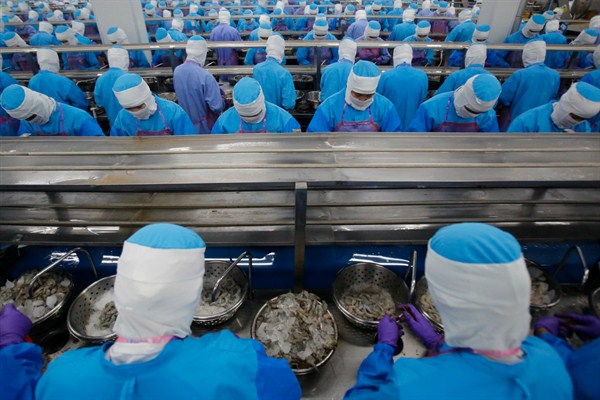In late October, the Trump administration announced the suspension of more than $1 billion in trade preferences for Thailand’s fishing industry due to rampant violations of human rights, particularly among migrant laborers who work in the sector. Thailand is one of the world’s largest seafood exporters, but its fishing industry has long been dogged by reports of slave labor, trafficking and other human rights abuses. While Thailand has made some progress in addressing these issues, it still has not implemented necessary reforms, says Steve Trent, founder and executive director of the Environmental Justice Foundation, a British watchdog organization. In an email interview with WPR, he discusses the shocking extent of human rights abuses in Thailand’s seafood industry and whether the Trump administration’s actions will be enough to reform it.
World Politics Review: How serious is the issue of human rights abuses in Thailand's seafood industry, and how long has it been going on?
Steve Trent: Thailand’s illegal, unreported and unregulated fishing problems have been intertwined with arguably some of the worst human rights abuses in any seafood sector around the world. The massive scale of the issue was evident when the Environmental Justice Foundation first started working in Thailand five years ago, but it predates our arrival by many years.

